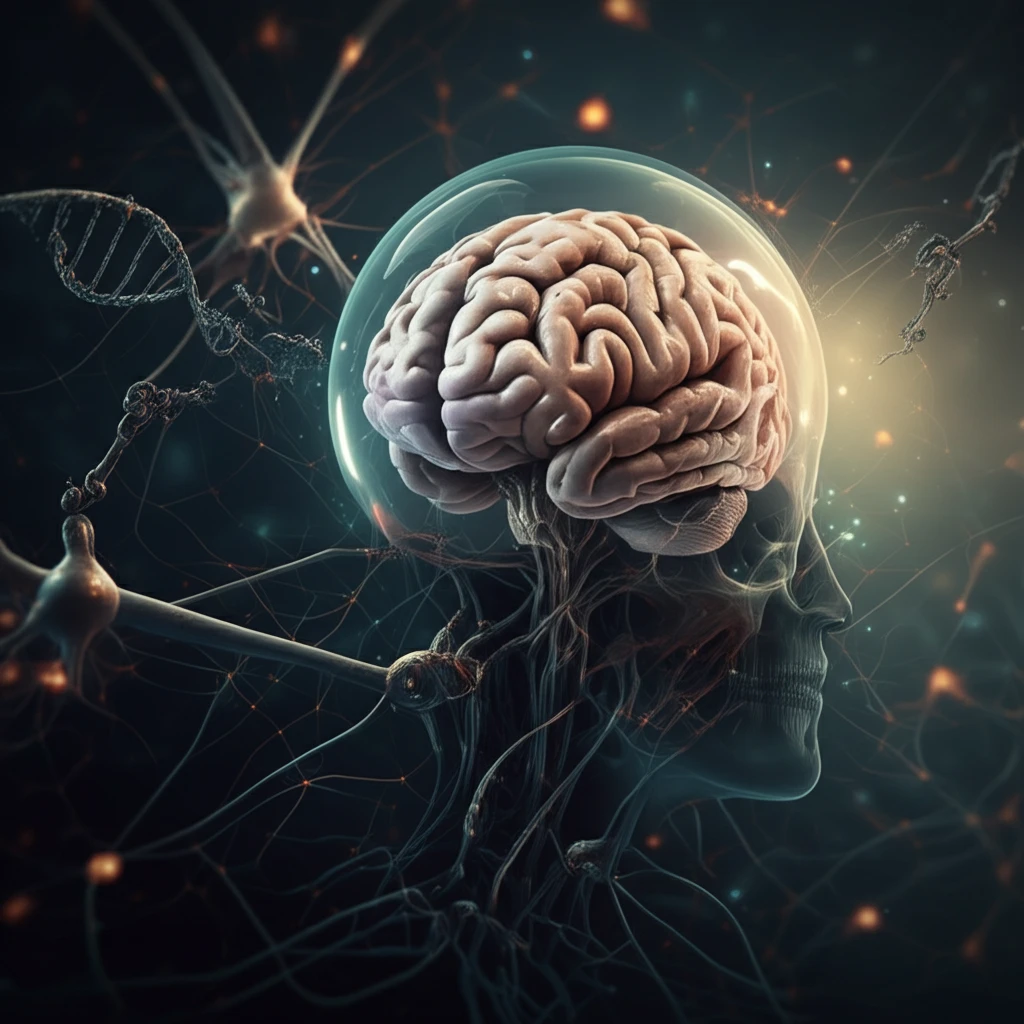
Unlocking Brain Health: How APE1 Guards Your Neural Genome
"Discover how the APE1 enzyme protects against DNA damage, preventing brain tumors and maintaining essential neural functions."
Our brains, the control centers of our bodies, are constantly working, and this high activity comes at a cost. One significant byproduct of intense neural activity is the creation of reactive oxygen species (ROS), which can damage our DNA. Think of it like the exhaust fumes from a high-performance engine. While the engine (our brain) is crucial, the exhaust (ROS) can cause problems if not properly managed.
To combat this, our cells have repair mechanisms to fix DNA damage. One of the key players in this repair process is a protein called Apurinic/apyrimidinic endonuclease 1, or APE1. Imagine APE1 as a skilled mechanic, constantly inspecting and repairing the engine of your cells. New research is shedding light on just how critical APE1 is for maintaining brain health and preventing severe neurological issues.
Recent studies using conditional inactivation of APE1 in mice have revealed its essential roles in the brain, especially after birth. This research highlights APE1's involvement in preventing brain tumors, maintaining thermoregulation, and preserving genome integrity. Let’s explore these vital functions and what they mean for our understanding of brain health.
Why is APE1 So Important for Brain Function?

APE1 is crucial for repairing oxidative DNA damage, which occurs when ROS modify DNA. The nervous system consumes a large amount of oxygen, making it highly susceptible to oxidative stress. When APE1 is deficient, this damage accumulates, leading to genomic instability, apoptosis (cell death), demyelination (loss of the protective sheath around nerve fibers), and even brain tumors.
- Genome Stability: APE1 ensures that the genetic material in brain cells remains intact, preventing mutations and other abnormalities.
- Prevention of Apoptosis: By repairing DNA damage, APE1 prevents brain cells from self-destructing.
- Maintenance of Myelination: APE1 supports the health of oligodendrocytes, which produce myelin, essential for nerve signal transmission.
- Tumor Suppression: APE1 helps prevent the development of brain tumors by correcting DNA lesions that could lead to uncontrolled cell growth.
The Future of Brain Health: Targeting APE1
Understanding the critical role of APE1 opens new avenues for therapeutic interventions. Strategies to enhance APE1 activity or protect it from degradation could be vital in preventing neurodegenerative diseases and brain tumors. As research progresses, we may see innovative treatments that leverage APE1 to maintain and restore brain health. Keeping our brains healthy is paramount, and APE1 is emerging as a key player in this ongoing quest.
